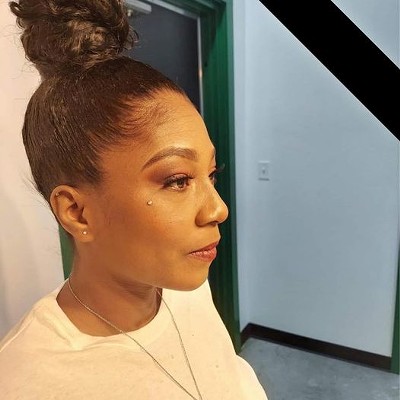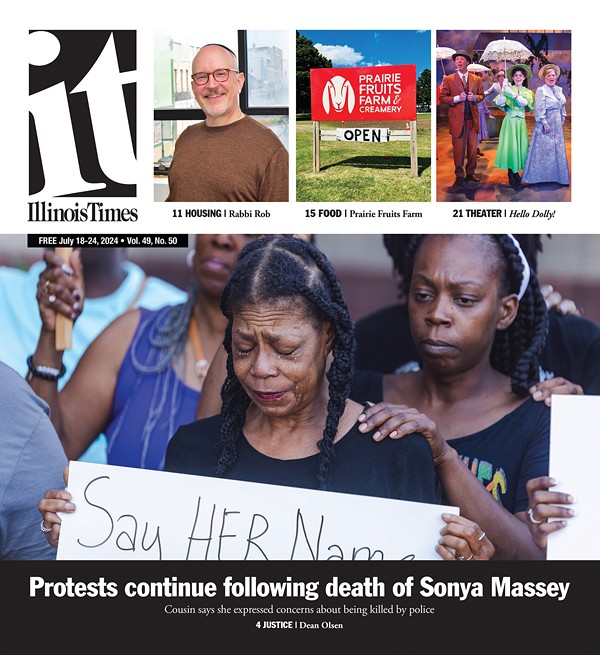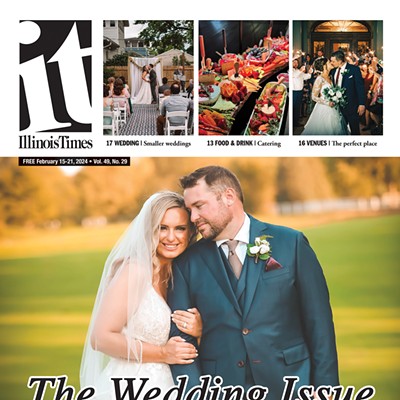Illinois preparing health insurance exchange
State will vet private insurance plans in public market
[
{
"name": "Air - MedRect Combo - Inline Content 1",
"component": "11490391",
"insertPoint": "3",
"requiredCountToDisplay": "1",
"parentWrapperClass": "fdn-ads-inline-content-block"
},{
"name": "Air - MedRect Combo - Inline Content 2",
"component": "11490392",
"insertPoint": "7",
"requiredCountToDisplay": "5",
"parentWrapperClass": "fdn-ads-inline-content-block"
},{
"name": "Air - MedRect Combo - Inline Content 3",
"component": "11490393",
"insertPoint": "12",
"requiredCountToDisplay": "9",
"parentWrapperClass": "fdn-ads-inline-content-block"
}
]
{image-14939}Illinois is preparing to roll out a crucial pillar of the federal health care reforms, but one puzzle piece remains out of place.
The state plans to open a health insurance market at the start of 2014, offering coverage plans sold by private companies and vetted by state regulators. It’s part of the federal Affordable Care Act – sometimes called “Obamacare” – and it’s meant to be a centralized website to compare and purchase private health insurance plans that meet basic state standards. But state lawmakers have yet to decide who will control the exchange and how much power to give regulators.
“It’s like building a truck and asking it to pull something heavy up a mountain,” says Jim Duffet, executive director of the Campaign for Better Healthcare. “If you put in a four-cylinder, you know what you’re going to get. This thing needs to have at least an eight-cylinder. It needs to have some real power.”
Illinois has made strides this year in creating the health insurance exchange. In October, the Illinois Health Care Reform Implementation Council, which is responsible for creating the exchange, chose the BlueCross BlueShield of Illinois BlueAdvantage plan as a “benchmark” insurance plan that provides a basic level of coverage for services like emergency room visits, maternity care, prescription drugs and preventative services.
A research team within the council deemed the BlueAdvantage plan the least expensive one that still meets all state health insurance mandates, and all other plans in the exchange must meet or exceed the levels of coverage in the benchmark plan. The council also chose benchmark plans for vision and dental coverage.
“It’s important that people are going to be able to compare the plans,” says Colleen Burns, special counsel for health policy with the Illinois Department of Insurance. “The idea of the Affordable Care Act is to institute market-wide reforms that put everybody on a level playing field, so that now all the plans will at least cover these 10 categories (of medical services). The idea is that someone can go online and say, ‘Well, I’ve got five different carriers, but at least I know ambulance service will be covered and that I have mental health services in there.’ At least now folks will be able to make informed decisions.”
The state has also adopted a design for the Illinois Navigator Program, which will certify individuals and organizations to guide consumers through the process of purchasing insurance.
By Nov. 16, the state must submit an application for the exchange to the U.S. Department of Health and Human Services. Burns says Illinois’ exchange will start with a partnership between the state and the federal government, in which the federal government will control the state’s health insurance exchange. In order for Illinois to take over control of the exchange, Burns says, state lawmakers must pass a law specifying who will regulate the exchange and how it will be funded.
Jim Duffet with the Campaign for Better Healthcare says the success or failure of the exchange depends largely on whether insurance companies are allowed on the Marketplace Governing Board, the entity which will regulate the exchange. He criticized legislation proposed by Rep. Frank Mautino, D-Spring Valley, which would allow insurance company representatives on the board and prevent the board from negotiating with insurance companies over premiums.
The board should be like a jury, Duffet explains, with insurance companies playing the role of an attorney arguing for certain decisions. He worries that if insurance companies are allowed to regulate the exchange, consumers will get shortchanged. Meanwhile, several insurance companies operating in Illinois have lobbied for a seat on the board, saying all “stakeholders” should have a hand in developing the regulations.
Now that the election has passed, Duffet says the issue could be taken up in the Illinois General Assembly during the fall veto session that starts Nov. 27. In the meantime, the Campaign for Better Healthcare is meeting with lawmakers to push for a consumer-controlled board. They also sent an open letter to Gov. Pat Quinn, signed by 110 organizations around the state, requesting that Quinn’s administration specify the board’s makeup and regulatory powers in its Nov. 16 application to the federal government.
“We’re disappointed that the governor didn’t do this by executive order and the legislature continues to wring their hands,” Duffet says. “But after the election, there’s no more excuses.”
Contact Patrick Yeagle at [email protected].
The state plans to open a health insurance market at the start of 2014, offering coverage plans sold by private companies and vetted by state regulators. It’s part of the federal Affordable Care Act – sometimes called “Obamacare” – and it’s meant to be a centralized website to compare and purchase private health insurance plans that meet basic state standards. But state lawmakers have yet to decide who will control the exchange and how much power to give regulators.
“It’s like building a truck and asking it to pull something heavy up a mountain,” says Jim Duffet, executive director of the Campaign for Better Healthcare. “If you put in a four-cylinder, you know what you’re going to get. This thing needs to have at least an eight-cylinder. It needs to have some real power.”
Illinois has made strides this year in creating the health insurance exchange. In October, the Illinois Health Care Reform Implementation Council, which is responsible for creating the exchange, chose the BlueCross BlueShield of Illinois BlueAdvantage plan as a “benchmark” insurance plan that provides a basic level of coverage for services like emergency room visits, maternity care, prescription drugs and preventative services.
A research team within the council deemed the BlueAdvantage plan the least expensive one that still meets all state health insurance mandates, and all other plans in the exchange must meet or exceed the levels of coverage in the benchmark plan. The council also chose benchmark plans for vision and dental coverage.
“It’s important that people are going to be able to compare the plans,” says Colleen Burns, special counsel for health policy with the Illinois Department of Insurance. “The idea of the Affordable Care Act is to institute market-wide reforms that put everybody on a level playing field, so that now all the plans will at least cover these 10 categories (of medical services). The idea is that someone can go online and say, ‘Well, I’ve got five different carriers, but at least I know ambulance service will be covered and that I have mental health services in there.’ At least now folks will be able to make informed decisions.”
The state has also adopted a design for the Illinois Navigator Program, which will certify individuals and organizations to guide consumers through the process of purchasing insurance.
By Nov. 16, the state must submit an application for the exchange to the U.S. Department of Health and Human Services. Burns says Illinois’ exchange will start with a partnership between the state and the federal government, in which the federal government will control the state’s health insurance exchange. In order for Illinois to take over control of the exchange, Burns says, state lawmakers must pass a law specifying who will regulate the exchange and how it will be funded.
Jim Duffet with the Campaign for Better Healthcare says the success or failure of the exchange depends largely on whether insurance companies are allowed on the Marketplace Governing Board, the entity which will regulate the exchange. He criticized legislation proposed by Rep. Frank Mautino, D-Spring Valley, which would allow insurance company representatives on the board and prevent the board from negotiating with insurance companies over premiums.
The board should be like a jury, Duffet explains, with insurance companies playing the role of an attorney arguing for certain decisions. He worries that if insurance companies are allowed to regulate the exchange, consumers will get shortchanged. Meanwhile, several insurance companies operating in Illinois have lobbied for a seat on the board, saying all “stakeholders” should have a hand in developing the regulations.
Now that the election has passed, Duffet says the issue could be taken up in the Illinois General Assembly during the fall veto session that starts Nov. 27. In the meantime, the Campaign for Better Healthcare is meeting with lawmakers to push for a consumer-controlled board. They also sent an open letter to Gov. Pat Quinn, signed by 110 organizations around the state, requesting that Quinn’s administration specify the board’s makeup and regulatory powers in its Nov. 16 application to the federal government.
“We’re disappointed that the governor didn’t do this by executive order and the legislature continues to wring their hands,” Duffet says. “But after the election, there’s no more excuses.”
Contact Patrick Yeagle at [email protected].
Illinois Times has provided readers with independent journalism for almost 50 years, from news and politics to arts and culture.
Your support will help cover the costs of editorial content published each week. Without local news organizations, we would be less informed about the issues that affect our community..
Got something to say?
Send a letter to the editor and we'll publish your feedback in print!















